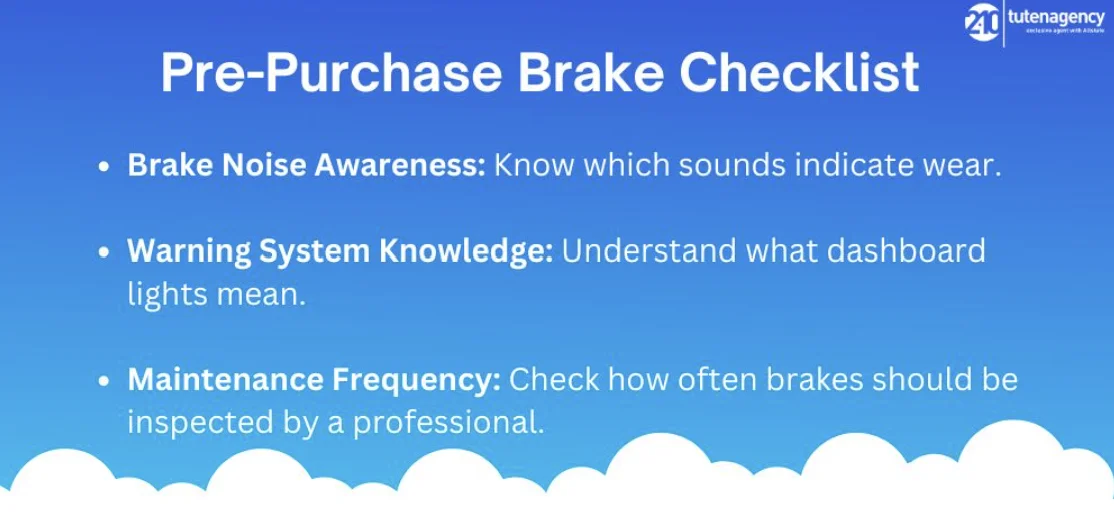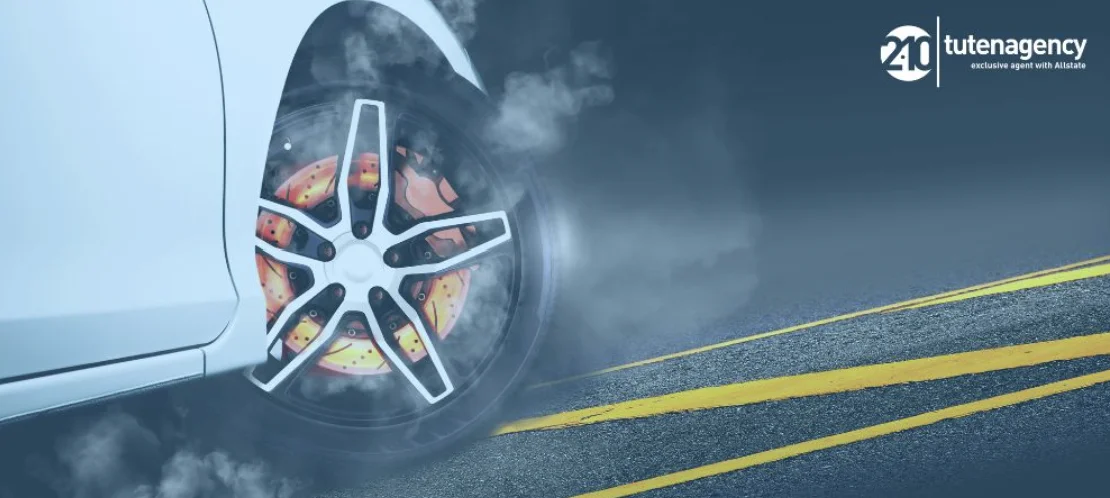Brake safety should be a top priority for all drivers concerned with maintaining their vehicle’s reliability and performance. Developing a comprehensive understanding of your car’s braking system is crucial. Familiarity with how brakes function and respond under different conditions can significantly enhance your safety on the road. This knowledge not only helps prevent accidents but also minimizes the likelihood of costly repairs due to brake-related issues. By ensuring your brakes are always in optimal condition, you contribute to safer roadways for everyone and extend the life of your vehicle.
Understanding Brake Failure
Brakes are crucial to your vehicle’s safety, ensuring secure travel. However, they are prone to failure due to several factors:
-
Neglected Maintenance
Ignoring regular brake checks can lead to severe problems akin to overlooking routine health check-ups.
-
Low Brake Fluid
This fluid is crucial for the brakes to function correctly. If it’s low, your brakes might become unresponsive.
-
Worn Components
Brake pads and rotors naturally wear out over time. It’s similar to how shoes get worn out after extensive use.
-
Environmental Damage
External elements like road salt or extreme weather conditions can also deteriorate your brakes faster than usual.

Identifying Signs of Brake Problems
Detecting early signs of brake issues can be life-saving. Here are indicators that your brakes need attention:
-
Unusual Noises
Sounds like squealing, scratching, or grinding when braking are serious alarms.
-
Vehicle Pulling
If your car veers to one side when you brake, it suggests an imbalance in your braking system.
-
Pedal Problems
A brake pedal that feels too soft, sinks to the floor, or requires pumping could indicate hydraulic issues.
-
Warning Lights
Never ignore the brake system warning lights on your dashboard; they are crucial indicators of potential problems.
Immediate Actions if Brakes Fail
Should your brakes fail while driving, follow these steps to ensure safety:
-
Remain Calm
Keeping calm helps you focus on managing the situation.
-
Alert Others
Use your emergency flashers and horns to alert other drivers of your predicament.
-
Decelerate Gradually
Lift your foot from the accelerator and shift to a lower gear to help reduce speed.
-
Apply the Parking Brake Gradually
Slowly engage the brake to prevent your wheels from locking.
-
Keep the Engine Running
Turning off your vehicle will disable the power steering, making it harder to control your vehicle.
Steps After a Brake Failure
Once you have stopped safely:
- Do Not Drive Further: Driving a vehicle with malfunctioning brakes is dangerous.
- Seek Professional Help: Have your vehicle towed to a mechanic for immediate repair.
Pre-Purchase Considerations for Brake Systems
When purchasing a vehicle, inquire about the braking system to ensure safety:
- Brake Noise Awareness: Understand the sounds that indicate brake wear.
- Warning System Knowledge: Learn what different brake warning lights mean and how to react to them.
- Maintenance Frequency: Determine how often the brakes need professional inspection and maintenance.

Regular Maintenance and Safety Checks
Regular maintenance is akin to preventive healthcare for your vehicle:
- Routine Inspections: Ensure that a qualified technician checks your brakes regularly.
- Comprehensive Vehicle Knowledge: Besides brakes, familiarize yourself with all other safety features of your car.
Summary
Maintaining your vehicle’s brakes isn’t just about preventing repairs; it’s about ensuring your safety and that of others on the road. You enhance your road safety by recognizing the signs of brake issues and knowing the correct actions to take if problems arise. Regular care and attention can significantly extend the life and performance of your vehicle’s braking system, making every journey safer.
FAQs
What are the differences between ceramic and metallic brake pads?
Ceramic brake pads are quieter and produce less dust but are generally more expensive than metallic brake pads, which offer stronger stopping power and durability under high stress from heat.
How often should brake fluid be changed?
Brake fluid should typically be changed every two years, regardless of mileage, to ensure optimal brake performance and safety.
What are the signs that my brake rotors need replacing?
Signs that indicate your brake rotors need replacing include visible grooves or severe wear, vibrations in the steering wheel when braking, and increased stopping distances.
Can weather affect my brakes?
Yes, extreme weather conditions, such as very cold or wet weather, can affect your brakes. For example, brakes can become less effective if they are waterlogged in heavy rain or freeze in extremely cold temperatures.
Get the right coverage for your car with tutenagency
New tutenagency customers?
Quote auto insurance online or call (334) 502-5111 to insure your vehicle.
Legal Disclaimer: ADVERTISING MATERIAL ONLY. Do not rely on this site or this article for legal or financial advice. The information provided on 210agency.com is strictly for educational purposes and to provide you with general educational information. Since state laws and financial regulations are subject to change, please schedule an appointment with an attorney or qualified financial advisor in your area to further discuss your personal situation. This public information is neither intended to, nor will it, create an attorney-client or financial representative relationship.

